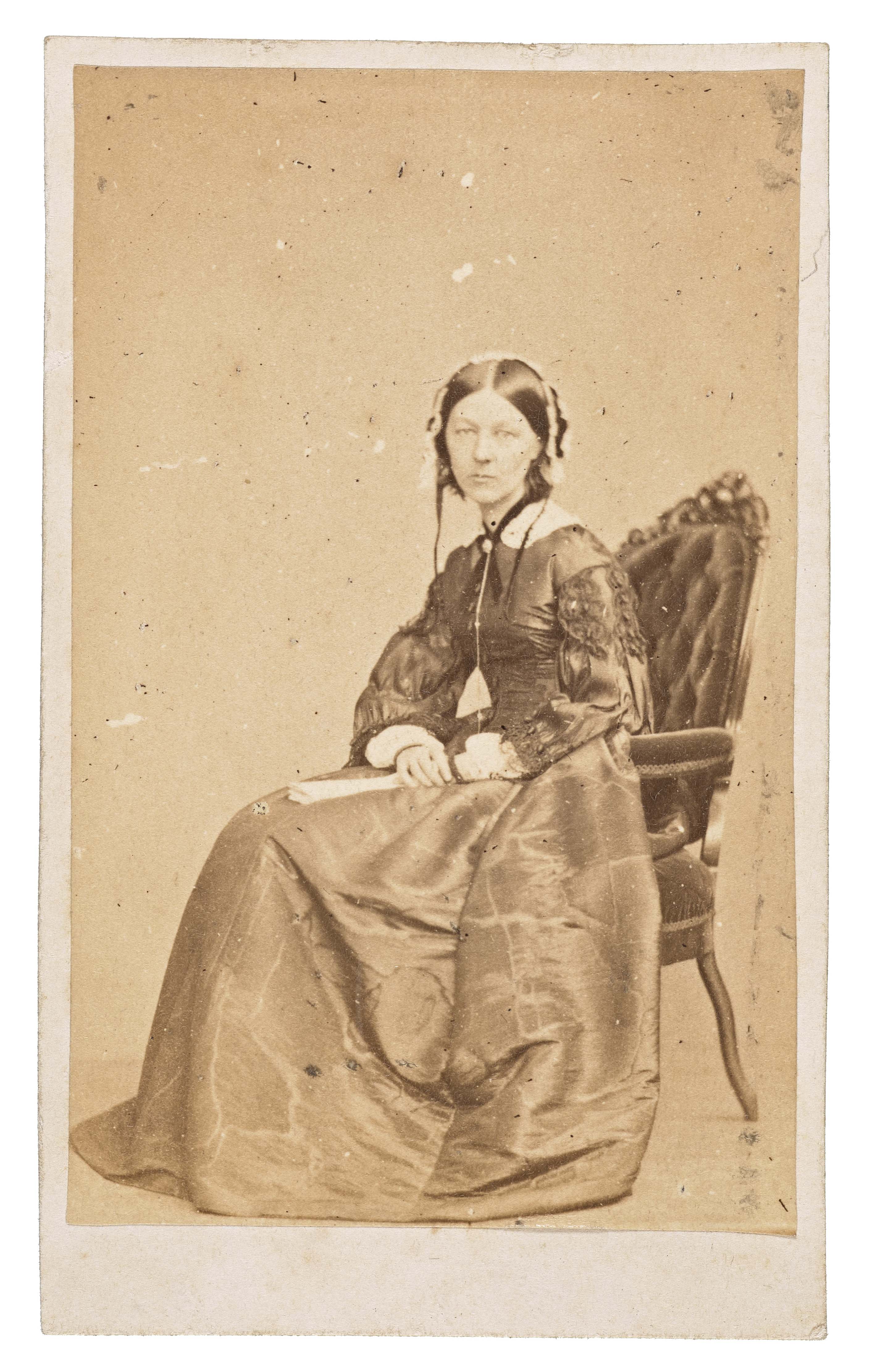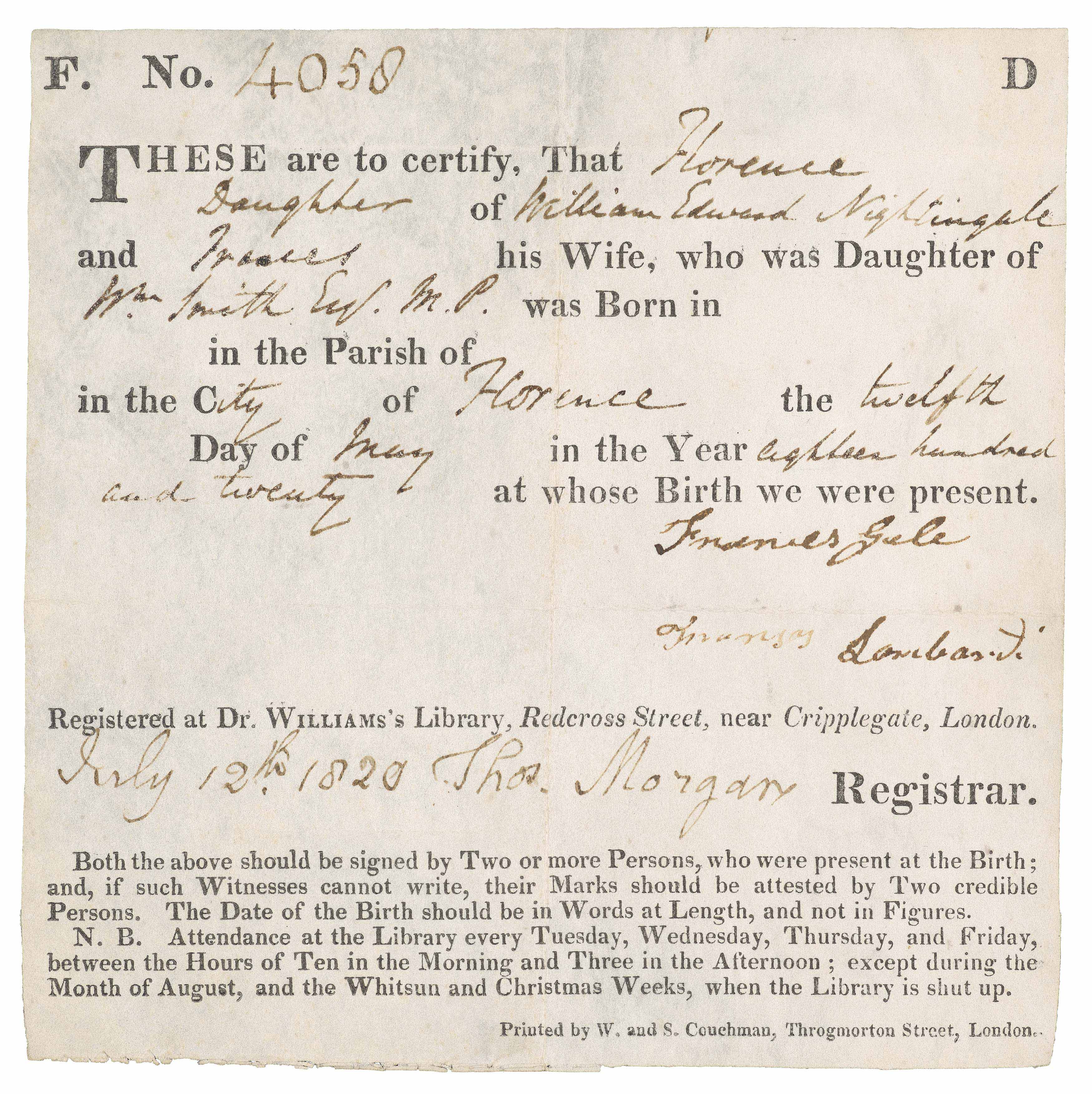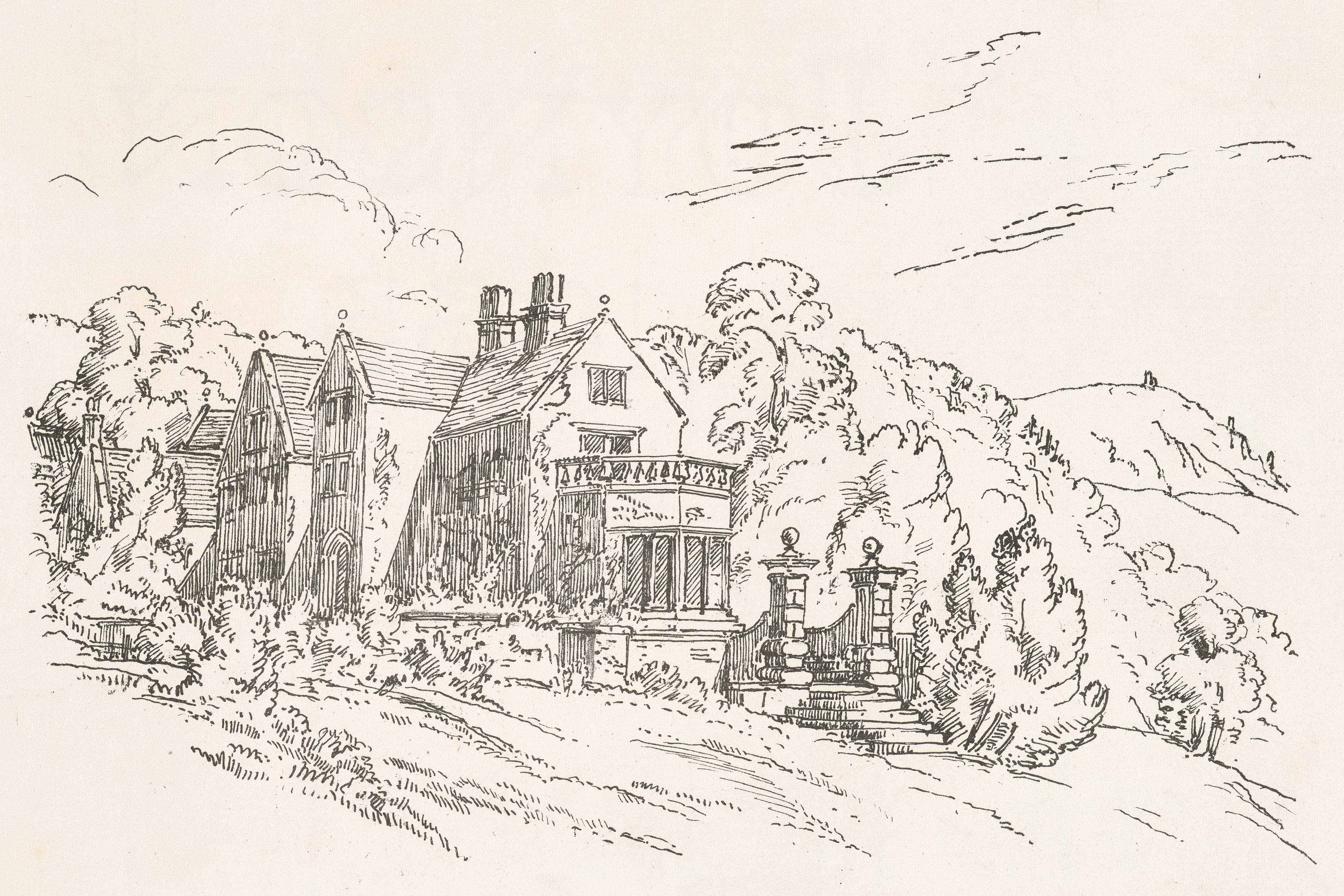Thursday, 07 May 2020
The University of Nottingham is to celebrate International Nurses Day on 12 May with the digital launch of a new exhibition marking 200 years since the birth of the world’s most famous nurse, Florence Nightingale.
Florence Nightingale Comes Home has been curated by experts at the University including its Manuscripts and Special Collections team, Professor Paul Crawford from its School of Health Sciences and Dr Anna Greenwood in the School of History.
The exhibition, which is funded by the Arts and Humanities Research Council, was intended to be shown in the Weston Gallery at Lakeside Arts in April. However, the team moved quickly to respond to the disappointment of the postponement of the physical exhibition due to the COVID-19 outbreak by adapting the collection to be shown digitally.
 Carte de visite of Florence Nightingale, by William Edward Kilburn, c.1856. From a private collection. Photographic visiting cards became enormously popular in the 1850s, pioneered by French photographer André-Adolphe-Eugène Disdéri. Nightingale, as one of the decade’s leading celebrities, featured on some 250,000 of them – chiefly reproductions of this image by William Edward Kilburn.
Carte de visite of Florence Nightingale, by William Edward Kilburn, c.1856. From a private collection. Photographic visiting cards became enormously popular in the 1850s, pioneered by French photographer André-Adolphe-Eugène Disdéri. Nightingale, as one of the decade’s leading celebrities, featured on some 250,000 of them – chiefly reproductions of this image by William Edward Kilburn.
Professor Crawford, who leads the research project funded by the Arts and Humanities Research Council, said: “We are pleased to be able to launch this digital exhibition to mark what would have been 200 years since Nightingale’s birth. The online exhibition is intended to act as a taster for the physical exhibition, which will hopefully be shown at Lakeside Arts at some point later this year.
“Never has the message about the importance of nurses been as pertinent as it is now. Florence Nightingale was a trailblazer for modern medicine and much of what she achieved is still represented in our hardworking NHS nurses today.
“Whilst the current pandemic has meant a delay to our planned exhibition, we still wanted to shine a light on the ‘Lady with the Lamp’ and give the public a glimpse into her fascinating life, which will hopefully provide some welcome relief in these difficult times. In particular, we want to draw attention to the place of the home in her life and work – something that will resonate with the millions of people who have faced social lockdown over recent months.”
 Certificate of registration of Florence Nightingale’s birth, 12 July 1820. Nightingale Papers, N 461/14 a-b. Claydon House Trust, an independent charitable trust which cares for the archives of the Nightingale and Verney families held at Claydon House, Buckinghamshire.
Certificate of registration of Florence Nightingale’s birth, 12 July 1820. Nightingale Papers, N 461/14 a-b. Claydon House Trust, an independent charitable trust which cares for the archives of the Nightingale and Verney families held at Claydon House, Buckinghamshire.
Visitors keen to get a sneak peak of the full exhibition, will be able to visit the website and find:
- An introduction to Nightingale and the exhibition, her family roots in Derbyshire, and ‘health at home’ – her work after the Crimean War to improve living conditions with a focus on sanitation and hygiene).
- A gallery of Crimean War photographs
- A virtual ‘turning the pages’ version of a scrapbook of the Crimean War, compiled by Florence’s sister Parthenope.
- A selection of images relating to Nightingale’s life and work
Hayley Cotterill, Senior Archivist, Manuscripts and Special Collections at the University, said: “When Florence Nightingale returned from the Crimean War she was a national celebrity. An engraving of her in the Illustrated London News in 1855 had made her instantly famous and already the classic images that we still associate with Nightingale today had been established – the Lady with the Lamp, and the Angel of the Crimea tending the wounded soldiers. But how far did this image reflect reality and what had led Florence to the war in the first place?
“We are delighted to bring you this new exhibition which explores the extent to which Nightingale was influenced by her family roots and upbringing in Derbyshire, her efforts during the Crimean War, and her subsequent work on improving sanitary conditions at home and in institutions such as hospitals.”

Print of sketch of Lea Hurst, the Nightingale family home in Derbyshire, n.d. Verney/Claydon Estate Papers, From Verney 13/2. Claydon House Trust, an independent charitable trust which cares for the archives of the Nightingale and Verney families held at Claydon House, Buckinghamshire.
Credit: Claydon House
Visit the website here.
Story credits
More information is available from Professor Paul Crawford in the School of Health Sciences at the University of Nottingham, at paul.crawford@nottingham.ac.uk
Notes to editors:
About the University of Nottingham
Ranked 97 in the world and 17th in the UK by the QS World University Rankings, the University of Nottingham is a founding member of Russell Group of research-intensive universities. Studying at the University of Nottingham is a life-changing experience, and we pride ourselves on unlocking the potential of our students. We have a pioneering spirit, expressed in the vision of our founder Sir Jesse Boot, which has seen us lead the way in establishing campuses in China and Malaysia - part of a globally connected network of education, research and industrial engagement.
Nottingham was crowned Sports University of the Year by The Times and Sunday Times Good University Guide 2024 – the third time it has been given the honour since 2018 – and by the Daily Mail University Guide 2024.
The university is among the best universities in the UK for the strength of our research, positioned seventh for research power in the UK according to REF 2021. The birthplace of discoveries such as MRI and ibuprofen, our innovations transform lives and tackle global problems such as sustainable food supplies, ending modern slavery, developing greener transport, and reducing reliance on fossil fuels.
The university is a major employer and industry partner - locally and globally - and our graduates are the third most targeted by the UK's top employers, according to The Graduate Market in 2024 report by High Fliers Research.
We lead the Universities for Nottingham initiative, in partnership with Nottingham Trent University, a pioneering collaboration between the city’s two world-class institutions to improve levels of prosperity, opportunity, sustainability, health and wellbeing for residents in the city and region we are proud to call home.
More news…